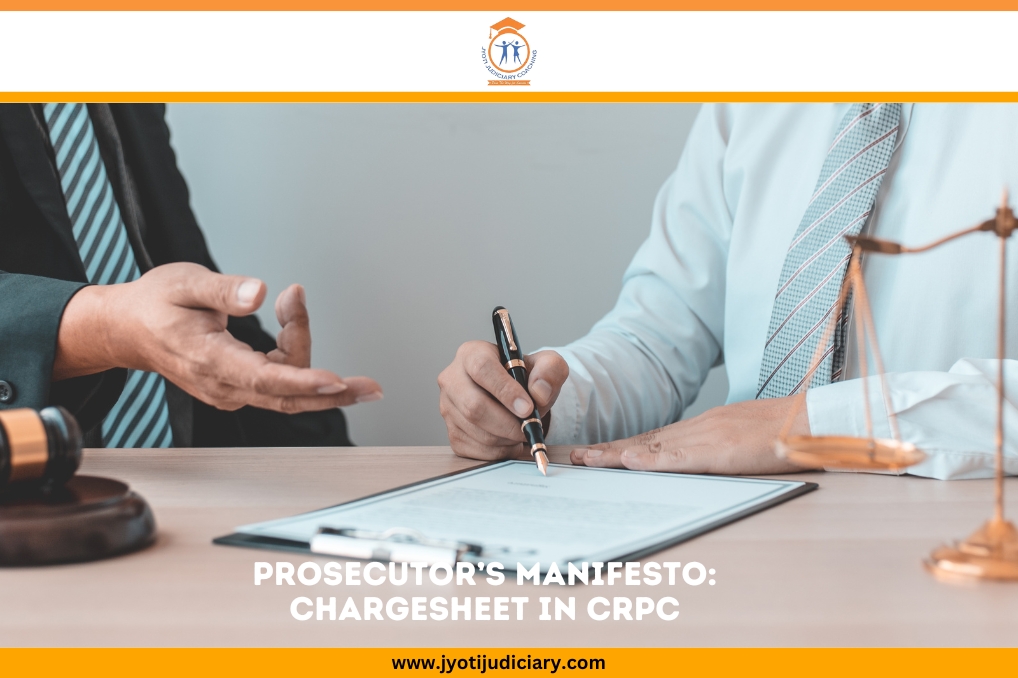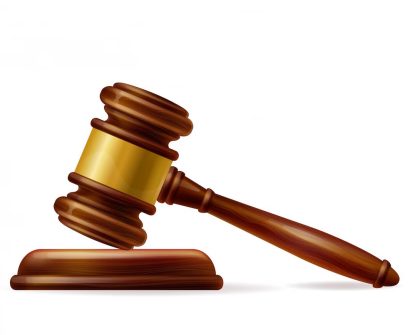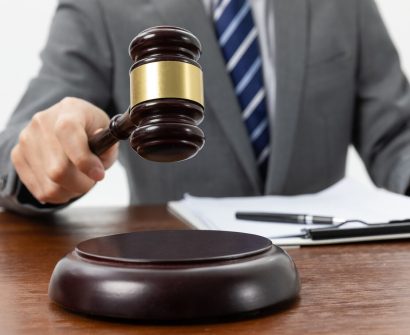
The chargesheet is a basis of prosecution in the discipline of criminal justice; it is the initial stage of the legal procedure. The chargesheet, which is controlled by the Code of Criminal Procedure (CRPC), is far more than just a document; it constitutes the prosecutor’s manifesto, a meticulously crafted account that captures the essence of the crime, provides the foundation for the law dispute, and fiercely pursues justice.
Chargesheet in CRPC
- As per the chargesheet meaning, it is a final report that, in a case that is either cognizable or not, is filed under Section 173 CrPC by the investigating officer or police officers. According to K. Veeraswami v Union of India & Others (1991), a chargesheet is “a final report of the police officer according to Section 173(2) of the CrPC.”
- The CrPC under Section 173 mentions the report that the police must file after concluding the investigation, and that report is known as a chargesheet. This is because in criminal cases, an investigation by police officers may only disclose certain events that otherwise would not have been made available by the parties before the court.
Chargesheet in CRPC: Contents
The following details must be included in a chargesheet by CrPC Section 173(2)(i):
- The parties’ names.
- Character of the data.
- Names of the persons who appear to be familiar with the occurrences.
- Regarding the apparent offense and the individual who appears to have done it.
- Details on the accused’s arrest, whether he was placed under custody under Section 170, and whether he was released with sureties or not.
Additionally, the investigating officer’s report must follow the format specified by the state government. According to clause (ii) of Section 173(2), the officer in charge shall also notify the individual who provided the initial information about the offense of the action that he has taken.
Maximum Time Limit to File Chargesheet
- The maximum time limit to file chargesheet is If the case is triable by lower courts, it must be submitted within 60 days of the accused’s arrest date; if it is triable by the Court of Sessions, it must be filed within 90 days.
- The accused is entitled to default bail if the charge sheet is not filed in the time frame specified above.
- A charge sheet and a First Information Report (FIR) are two different documents.
Charge Sheet in Criminal Cases: Benefits
- It is a crucial report that starts the criminal case against the defendant.
- The accused’s statement is given, along with others.
- Citations are made regarding the charges levied against the accused.
- It somewhat aids the accused in getting bail.
- A criminal trial cannot start in the absence of a charge sheet.
Chargesheet vs Fir: Difference
| CHARGESHEET | FIR |
| The police compile a chargesheet when concluding an investigation into a specific case. | The initial piece of information about a crime that can be prosecuted in the police record is called a formal complaint (FIR). |
| A chargesheet is created following the registration or filing of a formal complaint in a specific case. | When an offense is committed, an FIR is filed. |
| It is mentioned under Section 173 CrPC | It is mentioned under Section 154 CrPC |
| A charge sheet is created following the registration or filing of a formal complaint in a specific case. | The investigation’s initial phase is known as the FIR. |
| The court receives a chargesheet. | At the police station, an FIR is received. |
498a Chargesheet: What Happens after it is Filed?
- After filing the chargesheet, a complimentary copy is given to the accused. The Police may also file a Final Report at this point in extremely unusual circumstances. According to the final report, the police have determined that no crimes have been committed.
- The accused and the lawyer representing them are then given the opportunity to present their case before the court after analyzing if it is a true or false charge sheet in 498a, which entails outlining the specific charges against them. At this point, the accused may also file for release if he believes there is insufficient evidence to prosecute him.
Chargesheet: Can it be Quashed?
Under Section 482 of the CrPC, the High Court may use its inherent authority to quail a chargesheet, similar to a FIR. The High Court uses its inherent power to protect the interests of justice and guard against abuses of the legal system. For the reasons listed below, the same could be done:
- When the accusations made in the FIR against the accused are unfounded or fail to prove that an offense was committed.
- When the accused is believed to be the victim of false accusations, according to the court.
- When, and only under rare circumstances, a compromise was achieved between the parties.
The Supreme Court held in Anand Kumar Mohatta v State (Government of NCT of Delhi) (2018) that, if the offense was not made out in this case, the court may, in the exercise of its authority under Section 482 of the CrPC, dismiss the FIR even after the chargesheet has been submitted.
Being a non-public document, a chargesheet is considered relevant to a specific case when it helps the magistrate reach a decision, covers all the pertinent information, including witness testimony, and is substantial.
Chargesheet in CRPC FAQs
1. What happens when a chargesheet is filed?
The filing of the chargesheet indicates that the investigative agency has determined there is sufficient evidence to pursue the case. The court uses the charge sheet as justification to acknowledge the offense and begin procedures against the accused.
2. What is the difference between a charge sheet and a final report?
After the investigation into a cognizable offence is finished, the investigating officer forwards the charge sheet, which is the final police report, to the magistrate.
3. What is important in a chargesheet?
It alludes to an official police record that includes the names of all those taken into custody, the specifics of the accusations, and the identities of the people making them. It is sometimes referred to as a four-part charging device that includes the following data: Witness and accused details. The charges and requirements.
4. What happens if the charge sheet is not filed?
Section 167 of the CrPC states that if the investigating body does not submit a charge sheet within 60 days of the date of remand, the accused would be entitled to bail by default. Certain categories of offenses may allow for a 90-day extension of the prescribed period.
5. What is the next step after filing the chargesheet?
The court must use its judicial intellect to determine whether or not to take notice of the case following the police officers’ filing of a chargesheet. As stated in Section 190 CrPC, cognizance is of the offense and not the offender.
6. Can the police cancel the chargesheet?
Even if the inquiry reveals no crimes have been committed, he is powerless to withdraw the FIR. Following the conclusion of his investigation, he must submit the police report in its final form to the magistrate for approval, as required by Section 173(2) of the Code of Criminal Procedure.
7. Which coaching is best for the judiciary?
Jyoti Judiciary Coaching offers Jaipur’s best judiciary coaching services. The goal is to give the pupils a comfortable environment in which to learn. It raises the possibility of reaching the intended result by making the challenging work appear simple. Providing the greatest education available for pupils is the goal at Jyoti Judiciary. The Institute guarantees that it will make every effort to give you the best possible preparation for the Judicial Services entrance exams.
8. Which coaching is best for RJS preparation?
The reputable Jaipur coaching program “Jyoti Judiciary Coaching” aids students in getting ready for the RJS exam. A systematic approach to RJS test preparation is made possible by Jyoti Judiciary, the best offline and online RJS coaching program in Jaipur. The subjects and courses required to pass the Rajasthan Judicial Services Exams are all covered in its meticulously crafted curriculum.
Read to know: Summary Trial CRPC
With the goal of giving students the best coaching available for law entrance exams including the CLAT, AILET, and various other state judiciary exams, Jyoti Judiciary Coaching, India’s Finest educational Platform, was established. Come enroll now with Jyoti Judiciary!
For any latest news, legal topics, judiciary exams notifications, patterns, etc watch Jyoti Judiciary’s YouTube channel for legal videos for any updates at https://youtube.com/@jyotijudiciarycoaching4852?si=2cwubh9d2A9urwJf









